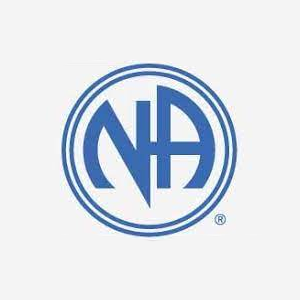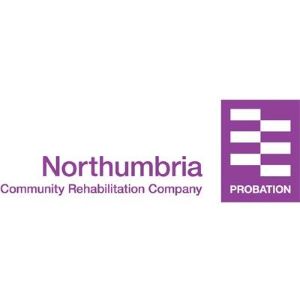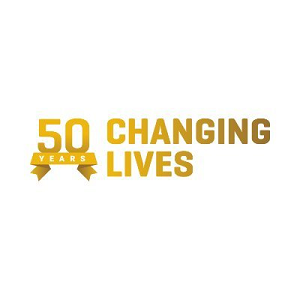Drug & Alcohol Rehab in Newcastle

How Does Rehab Work?
Rehab is a process that helps individuals in working towards restoring balance and well-being. Rehab focuses on addressing the patient holistically with individualised therapy aimed at addressing addictive behaviours. With guidance from a professional therapist or counsellor, coping mechanisms are taught and individuals can access much-needed support. Strategies focus on relapse prevention and clients can be assigned to an extended inpatient programme or move to an outpatient programme. With inpatient rehab (residential rehab), individuals will live at the rehab centre for the duration of treatment. Outpatient services are an alternative option in which clients will attend daily/weekly sessions for therapy but will not attend a full-time programme. There are both free and paid outpatient services available within the UK.
What Happens During Residential Rehab?
Rehab is the first brave step towards recovery and a substance-free life. It can be hard to work on quitting addictive behaviours on your own but with the support of professional intervention, a substance-free life can be achieved. You may have concerns about the unknown; however, a breakdown of the process can help put your mind at ease.
Prior to entering treatment, every individual will be assessed by a medical professional. The aim is to create a treatment plan suited to individual health and wellness needs. This is particularly important for those with a history of addiction and comorbid mental conditions including depression, anxiety or bipolar disorder.
Detox is an important part of a recovery programme. It involves the safe removal of drugs and/or alcohol from the body. When detox is performed with medical supervision, withdrawal symptoms can be monitored, and its severity managed. This can significantly improve the odds of success and minimise relapse.
Therapy is an important part of rehab and every aspect of treatment should be tailored to address individual backgrounds, substance dependencies, and circumstances. Interventions can range from private counselling and cognitive behavioural therapy to building coping mechanisms, life skills, and attending group meetings.
1. Assessment

For anyone entering rehabilitation, an assessment must be provided. It is a standard procedure meant to put your mind at ease as the specialist looks for specific behaviours, previous mental health conditions, and overall health. In an inpatient programme, it is normal to have an admissions screening performed by telephone prior to booking you into treatment. Telephone assessments allow the treatment centre to determine the relevant programme for you. It also provides staff with important information to individualise support services during detox.
Should you require the assistance of a medical expert to manage addiction, seek a medical assessment prior to treatment commencing. Assessments are an important part of choosing the right therapy and whether inpatient or outpatient programmes are most suitable for your healthcare needs.
2. Detox

Detox involves the cessation of drugs and alcohol from the body. With professional assistance, it is safely facilitated and is most commonly monitored in a residential rehab because of the dangers associated with withdrawal symptoms.
It is best to have a managed medical detox because the experienced staff is readily available to help you through the withdrawal process. As the substance is removed, you may start to experience withdrawal symptoms. Without professional help, there is a higher risk of relapse. Detox is followed by a fully tailored therapeutic programme. You can attend inpatient or outpatient therapy that is managed by trained addiction therapists and a support team.
3. Therapy

Therapy includes the one-on-one and group sessions you will attend with a qualified therapist, counsellor, and support staff. Treatment is provided in both a residential rehab or as part of an outpatient programme. The direction for therapy will depend on individual needs.
Step by Step Process for Residential Rehab
To understand your medical and mental health history.
Arrange a suitable date to begin your journey to recovery.
Begin the managed withdrawal process from substances including alcohol.
To understand the root cause of addiction and how to overcome it.
Aftercare is provided to help manage the risk of relapse.
To help heal the wounds that addictive behaviour has caused others.
Find your Nearest Rehab Centre in Newcastle
The nearest rehab centre is Wear Recovery.
Address: Wear Recovery, 4-6 Mary St, Sunderland SR1 3NH
Call 0333 4444 432 to discuss your alcohol or drug rehab requirements and any other questions you may have about the process of residential rehab.
Outpatient Addiction Services in Newcastle
Outpatient addiction services are available for those who cannot commit to a residential clinic or require a more affordable option for treatment. To help you with the appropriate treatment, we provide a breakdown of outpatient services compared to inpatient care.
An outpatient programme doesn’t require you to remain at the residence for treatment. If you have work, family, or other lifestyle commitments, outpatient programmes allow you to concentrate on these areas while visiting a clinic or counsellor to receive addiction therapy and other support services.
Private Outpatient services include therapy and counselling sessions delivered by a therapist/counsellor. Sessions can last up to 90 minutes. Free alternatives do exist through one of the many reputable charities in the UK (Turning Point), but it does not provide the same individualised care that private services provide.
The Benefits of Outpatient Services
Private outpatient programmes are tailored to the patient. The purpose is to offer the best standard of care and intervention for recovery from dependence. – Outpatient support is considered flexible because individuals with families and work commitments may continue to manage these areas of life while attending 1 or 2 therapy sessions per week. – It is also cheaper compared to inpatient rehab services.
The Challenges of Outpatient Services
Outpatient programmes will always have a crucial place in rehab but for alcohol and drug addiction, staying in the same environment with access to substances and the usual social circles can risk relapse. Furthermore, free outpatient services provided by the NHS or UK-based charities do not provide the same tailored programme that private outpatient services provide, and there is typically a waiting list before you can be accepted for treatment.

How Much Does Rehab Services Cost in Newcastle?
Drug or alcohol addiction treatment in a residential setting can cost between £1500- £4000 per week. If private addiction treatment is not an option, our goal is to help you locate the right recovery programme that suits your budget requirements.
The NHS and charities such as Turning Point provide free addiction treatment programmes for those battling drug and alcohol addiction. It is worth noting that Turning Point requires a self-referral. You can also find free support groups from Alcoholics Anonymous, Cocaine Anonymous, and Narcotics Anonymous very important for long term recovery from addiction.
Support Groups in Newcastle

Women Group
Upstairs, George Street Social, 45-51 George Street, Newcastle upon Tyne, Tyne and Wear NE4 7JN

FARSI SPEAKING MEETING Group
Westgate Road Baptist Church, 366 Westgate Road, Newcastle upon Tyne, Tyne and Wear NE4 6NX

Newcastle George St General Chair & Share
George Street Social, 45-51 George St NE4 7JN
The Pros and Cons of Seeking Treatment in Your Local Area
Pros
1. You are familiar with the area which may provide a layer of comfort/safety.
2. Family or friends can easily travel to visit or are close by.
3. You could save on the costs of travelling long distances for addiction treatment, or free services may only be offered in your area of residency.
Cons
1. A local environment means access to drug dealers or other triggers. This is more of an issue if you opt for outpatient programmes.
2. Failing to consider locations outside your area could result in a missed opportunities for more valuable and rewarding programmes.
3. Addiction treatment programmes that are close by don’t always offer the best standard of treatment.
In the event you are unsure about a particular addiction treatment service, you can look to the CQC website for more information including a rating of that service.


